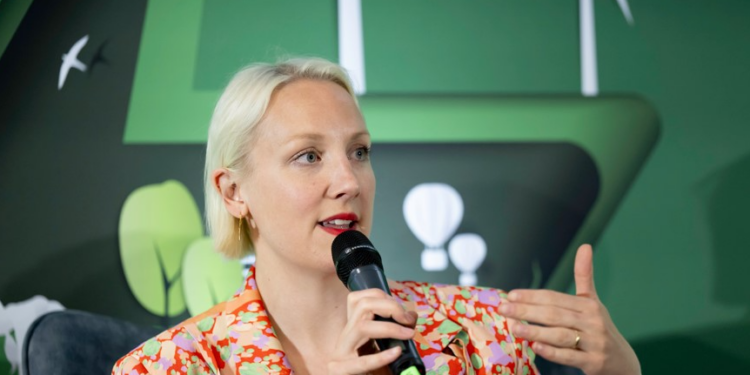The Climate Change Committee, the UK’s official Net Zero advisory body, has told the Government that to hit Net Zero it must impose radical lifestyle changes on the UK population. The Mail has more.
The UK’s drive for Net Zero means millions of Brits face having to install heat pumps in their homes over the next decade, according to the Government’s climate advisers.
The Climate Change Committee said there needed to be around 1.5 million heat pump installations a year in existing homes by 2035 – up from just 60,000 in 2023.
In its [advice on the UK’s] Seventh Carbon Budget, which sets a limit for UK greenhouse gas emissions between 2038 to 2042, the committee also piled pressure on Brits to buy electric cars, fly less and cut their meat and dairy consumption.
The report said, in order to meet the country’s Net Zero ambition, three-quarters of cars and vans and two-thirds of heavy good vehicles (HGVs) would need to be electric by 2040.
At the same time, Brits should be shunning their cars to cycle and walk more, while eating 25% less meat, the committee stated.
Holidaymakers were warned of more expensive flights as the committee urged the Government to commit to a 17% fall in aviation emissions compared to 2023.
Demand for air travel needed to be managed to curb emissions, with airlines taking responsibility for the costs of decarbonising through sustainable fuels, capturing carbon and electric and hybrid planes, the committee said. [All of which are, being generous, unproven technology.]
That would push up costs, for example increasing the price of a return ticket to Alicante, Spain, by £150 and a round-trip to New York could be £300 more expensive by 2050, according to the report.
Critics of Net Zero policies condemned the report as the committee’s “usual Marxist garbage” and urged Prime Minister Sir Keir Starmer to “face down the zealots” as his Labour administration scrambles for economic growth.
The Government is committed to reaching Net Zero – which means reducing greenhouse gas emissions by 100% from 1990 levels – by 2050.
Under the committee’s “balanced pathway” for reaching this target, the report found achieving Net Zero would cost around £110 billion over the next 25 years.
At an average of £4 billion per year between 2025 and 2050, this translates to around 0.2% of GDP.
This was estimated to be front-loaded into the first half of the period, peaking at annual net cost of £33 billion in 2029.
For the period between 2025 and 2040, the committee’s figures showed the drive to Net Zero would cost an eye-watering £320 billion.
But the report added, from 2040, the annual net cost would become a saving due to falling technology costs and more efficient use of energy and resources. [Jam tomorrow.]
This would lead to a net saving of around £35 billion in 2050, it said.
In its latest advice, the committee urged the Government to commit to an 87% cut on the UK’s 1990 levels of greenhouse gas emissions by 2040.
It set out what it said was a deliverable and cost-effective route to the greenhouse gas emissions cuts required from 2038 to 2042 to ensure the UK meets Net Zero by 2050.
Around a third of the emissions cuts in the period will have to come from action by households, mainly buying an electric car and a heat pump to replace an old gas boiler.
But personal choices on eating less meat and dairy, and flying, would play a “smaller, but important role”, the committee added.
To cut emissions from meat and dairy production – and free up land for tree planting to absorb carbon – Brits were told they would have to eat 25% less meat by 2040 compared with 2019 levels.
Worth reading in full.
The Climate Change Committee was created by the Climate Change Act 2008 to give the Government independent advice on how to achieve its climate goals. The Government is obliged under the act to create legally binding carbon budgets for each five year period up to 2050 to ensure it is on track. The Government doesn’t have to accept the committee’s advice – though to date it invariably has – but it does have to set a binding carbon budget (this will be the seventh, for 2038-2042) that keeps the country on target. Without repealing or amending the act the Government has very little wiggle room, so it’s worth looking out for what it actually comes up with in the next year or so. We shouldn’t expect it to be much different to what the committee has suggested, though. The point of the committee, after all, is to do the donkey work in figuring it all out. How this fits with ‘going for growth’, though, is anybody’s guess.
Stop Press: BP has announced it will cut its renewable energy investments by more than $5 billion (£3.9 billion) a year and instead focus on increasing oil and gas production, boosting its investments there by about 20% to $10 billion (£7.9 billion) a year.











To join in with the discussion please make a donation to The Daily Sceptic.
Profanity and abuse will be removed and may lead to a permanent ban.